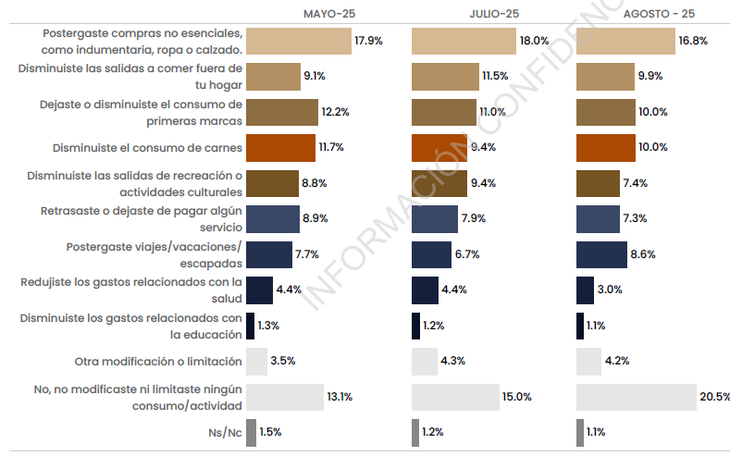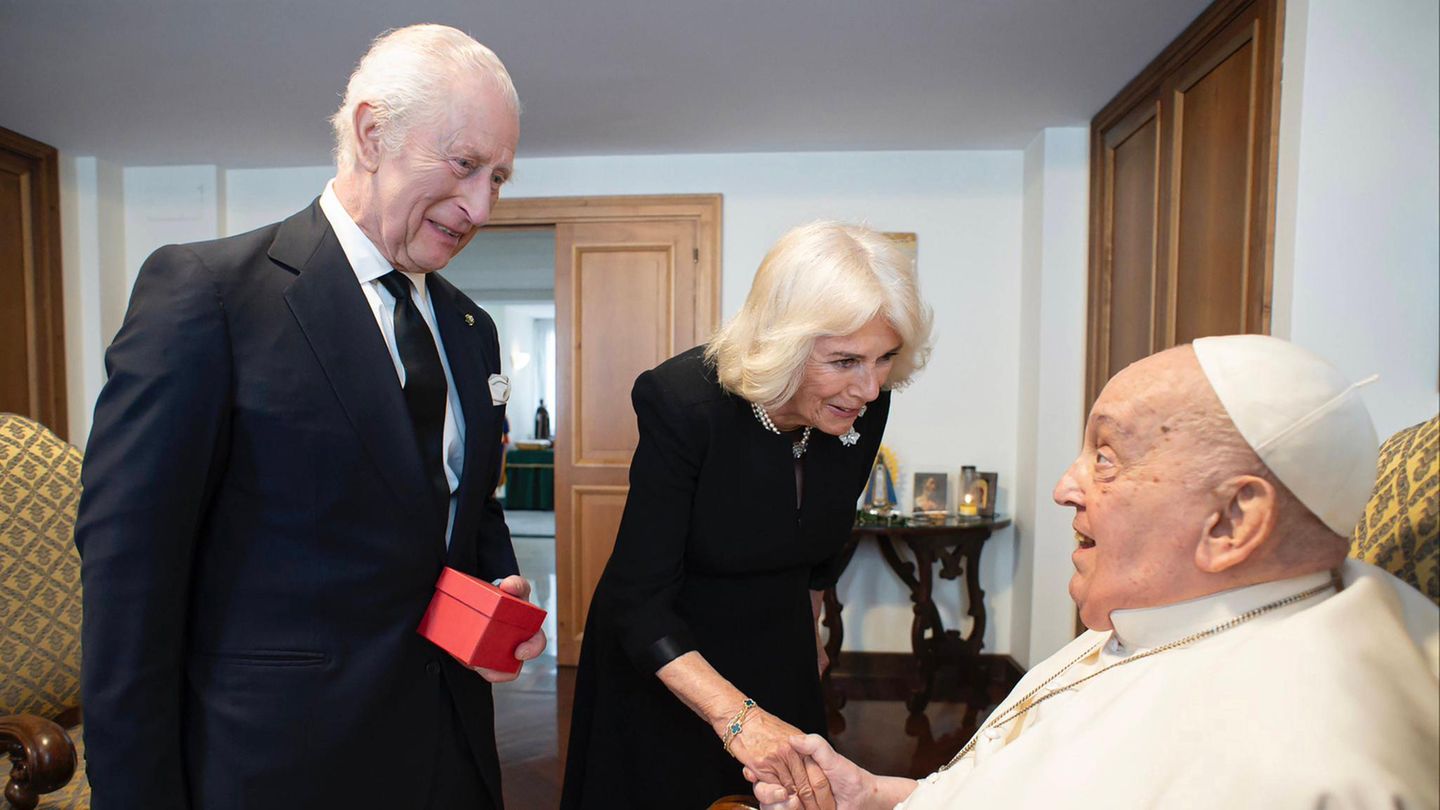A private survey revealed that most Argentines adjusted their consumption habits: less clothing purchases, lower meat intake and replacement of first brands.
A new national poll of a recognized political consultant presented the impact of the economic crisis on Argentine homes: 8 out of 10 people claim to have modified their consumption habits.
The content you want to access is exclusive to subscribers.
The main cuts are concentrated in clothing and footwearitem where most respondents admit to having postponed purchases or reduced their frequency.


Drastic change: 8 out of 10 Argentines modified consumption habits
Another of the most marked changes is the decrease in meat consumptionwith families who opt for cheaper cuts or directly reduce their presence at the table. In addition, the First brand replacement for cheaper alternativesboth in foods and in personal cleaning and care products, according to Management & Fit.
This situation is directly linked to the data on family income that arise from the same study. A 46.3% of households report that their income is not enough to cover the expenses of the month: a 29.6% do so with “some difficulties” and a 16.7% with “great difficulties”.
Screen capture 2025-08-17 132820

The data that Management & Fit consultancy relieved
In this scenario, mass consumption becomes more and more selective and austerewith a visible impact on both supermarkets and clothing. The contraction even affects average income sectors that, until recently, could sustain a more stable level of consumption.
The Management & Fit report also measured public opinion on announcements and recent measures of the national government. In all cases, the level of disagreement was greater than the agreementwith special rejection of vetoes to social laws.
-
He I veto the emergency for disability concentrates a 67.4% rejection.
-
He veto to increased retirement record a 66.5% against.
-
He Veto to the increase of salaries of the Garrahan hospital adds a 65.1% disapproval.
The survey also marks a strong political polarization: Voters of La Libertad advances and the PRO mostly support the measures, but among the voters of Union for the Homeland The level of agreement does not exceed the 10%.
As for the political identitya 33.2% of respondents claim not to identify with any ideological category (right, center or left). A 26.8% is defined as “right/conservative”a trend that grows among men and in children under 40.
The only measure that showed a level of parity was the Privatization of AySAwith a 45.2% agree in front of a 47.6% rejection.
Source: Ambito




